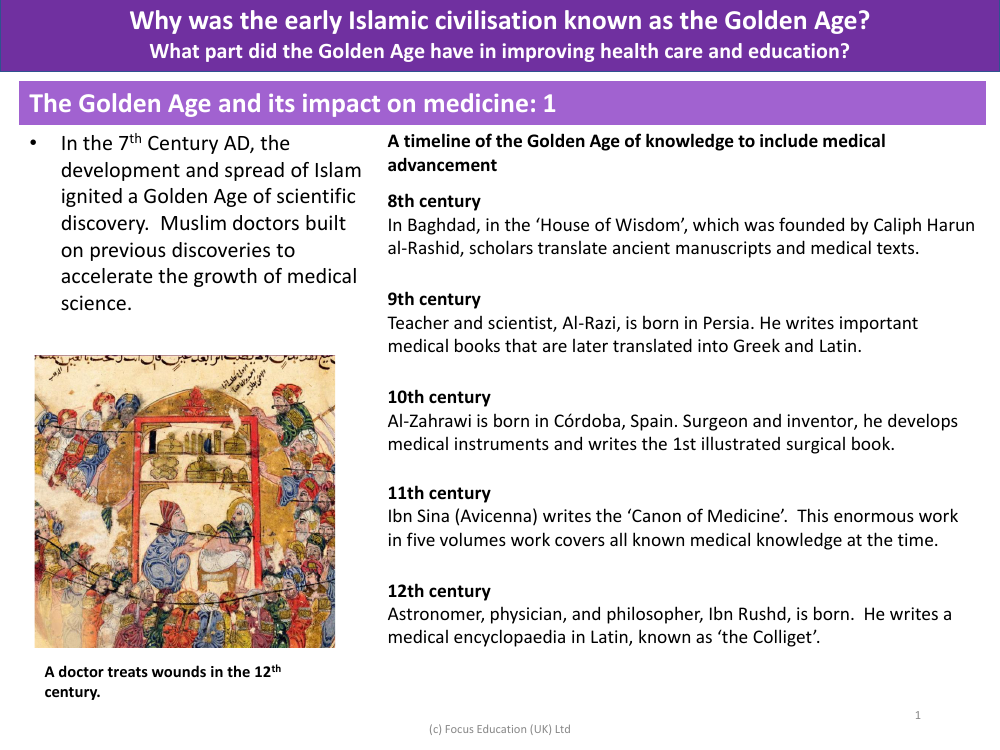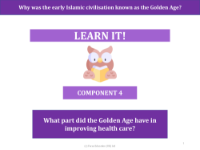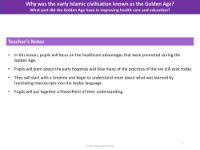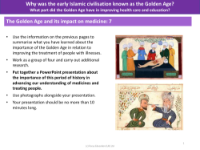The Golden Age and its impact on medicine - Info Pack - Year 5

History Resource Description
The term 'Golden Age' refers to a period of significant advancement in the Islamic world, particularly between the 7th and 12th centuries, which had a profound impact on medicine. This era was marked by a surge in scientific discovery, greatly influenced by the development and spread of Islam. Muslim doctors made considerable strides in medical science by building upon earlier discoveries. For instance, the 'House of Wisdom' in Baghdad was a hub for scholars who translated ancient manuscripts and medical texts. Throughout the centuries, notable figures such as Al-Razi, Al-Zahrawi, and Ibn Sina (Avicenna) made substantial contributions to medical knowledge through their writings and innovations. This period saw the creation of the first illustrated surgical book, the comprehensive 'Canon of Medicine', and a medical encyclopaedia known as 'the Colliget'.
During the Golden Age, medical education and healthcare underwent significant improvements. The establishment of Muslim schools of medicine, such as the madrassa, played a crucial role in advancing medical knowledge. These institutions, often located next to mosques, were closely linked to hospitals and provided students with practical experience by observing and learning from qualified medical practitioners. Notable hospitals in cities like Cairo, Harran, and Baghdad offered a variety of wards for different diseases, outpatient clinics, recovery wards, and pharmacies. These hospitals were akin to modern medical centres and also served as training grounds for future doctors. The integration of medical advancements from the Islamic world into European practices during the 12th century marked a turning point for Western medicine, moving away from the belief that illness was divine punishment and towards a more empirical and educational approach to healthcare.




